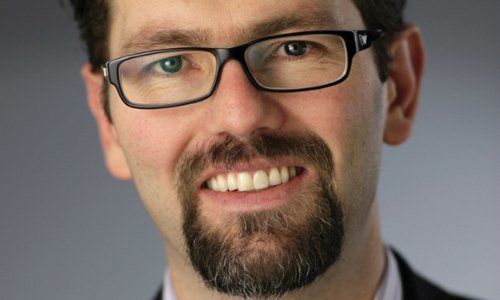GAM Taps Geeks to Boost Fortunes
GAM disappointed investors with a slide in profits and performance fees last year as clients withdrew funds. Now, the asset manager is betting on a pricey computer-based unit to push into mechanical trading. finews.com spoke to the unit's co-head.
GAM head Alex Friedman has always had a knack for marketing, talking up the asset manager's strategic initiatives and future performance to analysts and investors even as profits slide and clients exit in droves, pulling their money out of the Zurich-based asset manager.
Thursday was no exception, with Friedman portraying GAM as a long-term turnaround story, as the firm sets course to return to growth. In the meantime, the company has already been singled out by an activist hedge fund, RBR Capital.
As Friedman slashes spending and trims the company to tap future growth, another pillar of GAM’s strategy is emerging to help reverse the company's fortunes: systematic trading, or buying and selling automatically with little human intervention.
No Drone-Flying
Eight months ago, Friedman spent $217 million plus 40 percent of future fees to buy Cantab, a mechanical trading firm set up by a former Goldman Sachs quantitative specialist.
Employees at Cantab, which cleared a $38 million profit on $4 billion in assets in 2015, aren’t your usual hedge fund types: you are more likely to find them trying to get a drone airborne (not allowed in the office) than obsessively check their online trading accounts.
«These are incredibly intelligent guys who love doing all sort of innovative things,» GAM executive Anthony Lawler (pictured below) told finews.com recently.

Cantab is an abbreviated version of the Latin word for Cambridge, a nod to the firm’s home in «Silicon Fen» just outside the university city.
Bolstering Profits
GAM justifies the pricey acquisition by arguing it will add to profits from this year – it added 4.8 million francs last year – and that Cantab’s technology platform is the cornerstone for GAM’s own systematic trading division.
«We wouldn't have made such a big strategic move if we didn’t think we could grow quite significantly over time,» Lawler says. He co-leads the unit with Adam Glinsman, who was chief executive of Cantab when GAM bought it.
To be sure, the GAM systematic trading unit, which Cantab forms the basis of, lost 200 million Swiss francs last year, leading its overall assets 5 percent lower to 3.8 billion Swiss francs. Friedman said GAM Systematic reversed those outflows into considerable inflows of net new money in the fourth quarter, which should continue this year.
Cantab was founded ten years ago by a former Goldman Sachs quantitative specialist. It now counts 56 employees, more than half of whom are involved in academic research, including at Cambridge.
Rise of Trading Machines
What is systematic trading, and why does it matter for GAM? Like elsewhere, the rise of machines offer asset managers a cheaper, hands-free investing of a much larger trading world than a portfolio manager can cover.
They promise returns which aren’t correlated to wider market moves, though this is difficult to corroborate as many systematic funds including those offered by GAM and Cantab are opaque.
They are the emotionless counterpart of discretionary trading, where managers can override a fundamental investment view and may have an in-built bias.
Systematic trading houses – from algorithmic trading to high-frequency outfits – are growing in popularity.
What does it mean to GAM? The Swiss asset manager, heavily exposed to debt markets and equities, needs to expand its offering.
A Passing Fad?
It is Lawler’s job to keep Cantab’s 30-odd Cambridge-based scientists happy – not only because future fees rely heavily on it, but because GAM needs the acquired brainpower to break into the business.
«In some ways you can think of the innards of what we have here as almost a fintech, a financial software technology company – that was the big attraction for us,» Lawler said.
«As we deliver for our clients the existing products and build new ones, we don't have to spend anytime having discussions about whether the system is working correctly or the data is correct, that stuff is excellent and rigorously managed.»
The GAM unit is going up against other systematic trading outfits like Dimensional Fund Advisors, AQR, Winton and Man Group – from where GAM poached Lawler five years ago.
«I don't think its a passing fad, I actually think we’re probably early into a multi-year shift in preferences from institutional investors to include more of systematic strategies,» says Lawler.



























